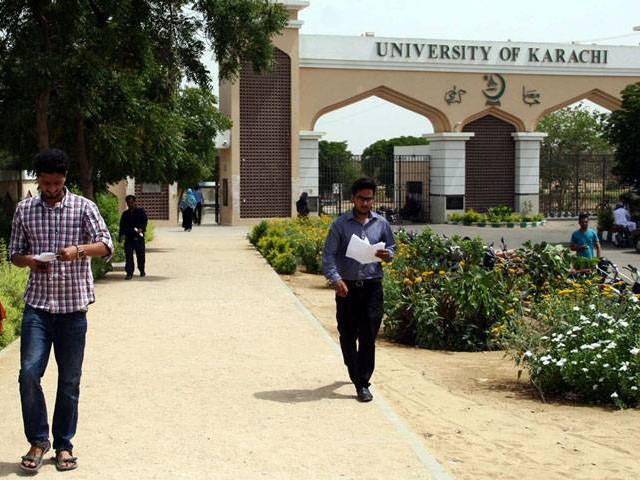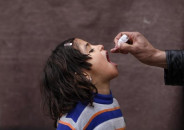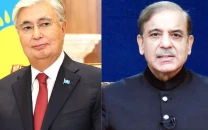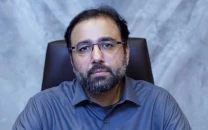Analysis: The rising cost of higher education in Pakistan
In Karachi, due to lack of public transport, students pay a minimum of Rs5,000 to Rs10,000 a month in van fees

As higher education is demanding, students need space at home to dedicatedly focus on their academic work. PHOTO: ONLINE
Higher education woes
Generally, education funding is the most important form of support offered by educational institutions, particularly at the higher secondary and university level. This is in the form of full or partial tuition fee waiver, loans, which are uncommon, and formal and informal community support. The basic criterion for this provision is high standard of academic performance. Participation in extra-curricular activities is also looked at favourably. All these require students to devote more time and energies to their educational endeavours, which comes with a price.
Unavoidable ‘other’ expenses
In one of the sessions at the Karachi Literature Festival 2016, heads of Pakistan’s leading business and liberal arts institutes shared the enormous level of education funding support for students offered by each one of them. The coverage ranged from 50% to 85%. They were all responding to the assertion that higher education is an expensive proposition and hence, inaccessible. While there is no negating the fact that many established institutes generously offer funding, especially to students from low-income families, a thorough research on the quality and adequacy of such funding and its role in easing access to higher education is unavailable. This cripples one from finding a fair assessment of the ratio of “scholarship dropout” prevalent in our education system, but there is evidence of the presence of such a phenomenon.
Maintaining high academic performance – a pre-requisite for educational funding – requires expenses that go beyond tuition fee. Those hailing from low-income backgrounds struggle with a list of education related expenses that are unavoidable.
The Pakistan Social and Living Standard Measurement Survey (PSLM) 2013-14 marks higher education as the most expensive item for households, compared to primary and secondary education, whether government or private. The mean annual expenditure on higher education in urban areas, in government institutes is Rs25,374 and Rs42,704 in private facilities. This includes tuition fee as well as what has been categorised as ‘other’, which includes uniform, books, supplies, private tuition and transport. This ‘other’ category at Rs12,191 in public universities and Rs14,406 in private institutes constitutes 48% and 33% respectively, of the total expenditure on higher education.
The PSLM statistics give a conservative estimate. A regular higher education student spends a substantial amount on transport, purchase of books, library membership, photocopies of notes, access to computer and internet, and canteen. On top of this, all major disciplines require students to undertake independent or group projects to add value to their academic experience. Such projects entail expenses that include field work, academic and project material, and production of output, all to be borne by the students.
The enormity of education-related cost can be gauged from the fact that in Karachi, due to poor availability of public transport, students have to pay a minimum of Rs5,000 to Rs10,000 a month for van fee to commute to universities (depending on the distance). Other means of transport such as rickshaw or own car can comprise at least 60% to 70% of this cost every month. A general inquiry from students of various universities indicates a monthly spending of a minimum of Rs1,000 on photocopies alone. Books are another expensive undertaking. Canteen snacks may cost at least Rs100 a day. Together these expenses may add up to a minimum of Rs10,000 per month.
As higher education is demanding, students need space at home to dedicatedly focus on their academic work. In cramped urban spaces, especially in Karachi and Lahore, family houses with a separate room for each child is a luxury, not accessible to a majority. A lack of quality public and community libraries and spaces, further burden students with finding an appropriate arrangement to study in non-university hours.
Surely, it helps if the tuition fee is paid for, but these unavoidable expenses put immense stress on family income. The possibility of conflict cannot be ruled out either as families with young children are faced with competing demands made on the income, with living and educational expenses comprising a major part.
Education cost: a burden
The state’s privatisation of, and withdrawal of subsidies from, basic services such as utilities, transport, essential food items, healthcare and education has further sought to strain family incomes. Young urbanites, at the graduate level, also seek to work to make ends meet. However, the job market, apart from being immensely competitive forcing the entry-level salary to stay at a lower minimum, also demands full-time commitment.
Newly launched Malir University promises good quality, affordable education
A young graduate of Karachi’s Shaheed Zulfikar Ali Bhutto Institute of Science and Technology, shares that by the time she rushes to her Executive MBA class from her nine to five job, she is so exhausted that she has difficulty concentrating. This is in addition to the day-long struggle to juggle between managing office work and university assignments.
In the absence of concerted subsidised packages facilitating students’ academic pursuits, educational funding limited to tuition fee, may not entirely serve the cause of access to education, especially for low-income households. There is much need for subsidised transport (as offered by a few public and private universities), subsidies on academic material, funding opportunities for projects, establishment of functional public libraries and community study spaces. All this in addition to students-specific jobs, particularly on campuses to save time and transport cost. Facilitation for extracurricular engagement along with counseling cannot be emphasised enough.
The enormous financial resources invested by parents, universities as well as the society into higher education should result in the generation of human capital. One that is capable of contributing to social good, rather than individuals in narrow pursuit of self-interest drawing justification from an over-expensive graduate degree.



















COMMENTS
Comments are moderated and generally will be posted if they are on-topic and not abusive.
For more information, please see our Comments FAQ